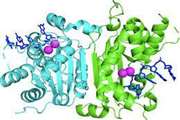impacts of COVID-19 pandemic on HIV patients
The impacts of COVID19 pandemic on service delivery and treatment outcomes in people living with HIV a systematic review
The COVID-19 epidemic and various control and mitigation measures to combat the widespread outbreak of the disease may affect other parts of health care systems. There is a concern that the COVID-19 pandemic could disrupt HIV services. Therefore, this study aimed to systematically evaluate the effect of the COVID-19 pandemic on service delivery and treatment outcomes in people with HIV. Methods: In this study, a systematic search was conducted using the keywords in the online databases...
Association of TREX1 polymorphism
Association of TREX1 polymorphism with disease progression in human immunodeficiency virus type-1 (HIV-1) infected patients
The time interval between HIV-1 infection and AIDS development is not the same in all patients and depends largely on the genetic background of the individual. Polymorphisms in the TREX1 gene, the main enzyme in the clearance of cytosolic DNA, affect type 1 interferon-mediated inflammatory response in HIV-1 infection. We aimed to study the role of a single nucleotide polymorphism (rs3135941) of the TREX1 gene and the rate of disease progression in patients infected with HIV-1. A total of 190 HIV-1...
Prevalence of hepatitis B infection in the Gambian
Prevalence of hepatitis B infection in the Gambian population: A narrative review of recent developments
Hepatitis B is a "silent epidemic", fifty to a hundred (50-100) times more infectious than HIV, a potentially life-threatening liver infection caused by the hepatitis B virus (HBV). HBV can cause acute and chronic infection and subsequently results in a high risk of death from cirrhosis and liver cancer. Despite the availability of a safe and effective vaccine, HBV continues to be a global burden including in The Gambia. This study reviewed the recent trends in the epidemiological characteristics...
Current ART, determinants for virologic failure and implications for HIV drug resistance: an umbrella review
The purpose of this study is to investigate the incidence of determinants for virologic failure and to identify predisposing factors to enhance treatment efficacy. Tackling this global public health issue is the key to reducing the rate of virological failure and increasing the success of treatment for those living with HIV. Methods: This umbrella review delves into various aspects of current anti-retroviral therapy (ART) which is the primary treatment for human immunodeficiency virus...






